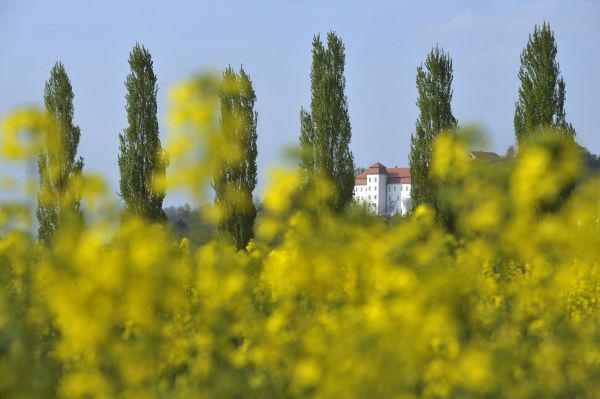
This is why Lendava has started preparations aimed at becoming a candidate for the title of the European Capital of Culture in 2025.
Yes, that's right. The town of Lendava is preparing to announce candidacy for the European Capital of Culture in 2025. The project, established in 1985 at the initiative of the Greek minister of culture, Melina Mercouri, is a Pan-European project which is based on the premise that cities should be put into the centre of Europe's culture and arts. The hosts of the title work on improving the quality of life in the city through culture and art, strengthening the sense of community and connection in this way. City dwellers are an active part of preparations – which may take several years – and take on themselves a more significant and active role in the progress and cultural image of their own city.
A town that gets tone and colour from its people
Lendava is a town in the very beak of Slovenia's hen-shaped map – it lies in the eastern-most part of the country, by the border, which is also reflected in its official bilingual status, but at least four languages "flow" through it. Namely, Lendava is a town that has been shaped by Hungarian, Germanic and Slavic cultures, with a touch of Italian influences, brought there by the people from the southwestern regions of Primorska and Istra, who fled from fascism between the wars to the very northeast of the country and settled there permanently in colonies. Another proof that Lendava is not a typical town on the left bank of the Mura River is also the fact that the region's distinct dialect is not used in this town. Nor is Lendava a typical Slovenian town, since it is an open and tolerant town where differences co-exist peacefully and where mutual respect does not only exist on paper. As such, the town is an epitome of what every civilisation should hope to become. Lendava has a rich history, marked by the Jews, the Roma people and other minorities as well as the border. It is a foretelling symbol of historical, socio-political and civilizational processes and what their fate may be. It is a town that gets the tone and colour from its people.
What about other Slovenians, how much do they know about Lendava? Not much! The first response is usually that it is located somewhere in the East. Humankind has a romantic attitude toward the East and everything that lies in the East. What pops up in the minds of Slovenians are the images of dreaming and mystique, superficial concepts of melancholy and soul as well as wrong impressions of remoteness and foreignness, of something far away that is not within the limits of the world we're interested in. What a shame! This is why the project of the European Capital Culture seems more than appropriate, not only for Lendava but also (and often particularly) for everyone else to make a step forward, a step closer to the above-mentioned tolerance and openness, mutual respect and hope for the better future of our civilisation.
Bringing together creativity and economy
Culture rarely plays the role of connecting various public and developmental policies of cities, regions and the country. The title of the European Capital of Culture, however, enables the culture to bring together creativity and economy as well as local and government authorities, which opens up possibilities for long-term strategic planning. Culture as such has the ability to change the image of the city, and brings positive social effects in addition to cultural and economic benefits. Which is of key importance in the case of Lendava and beyond, as explained above. The 'European Capital of Culture' project changes the image of the town/city through various investments. What also undergoes changes is its self-image. International studies have shown that the project has had extremely positive effects on the image and perception of the city by its dwellers while also serving as a catalyser of prospering cultural tourism and new types of cultural activities in the city and its wider surroundings.
Lendava is struggling with a massive brain drain of the young population, which sets off to find its place under the sun elsewhere: in Ljubljana, Zagreb, Maribor, Hungary. The 'European Capital of Culture' project could not only provide new vacancies but also retain them once the year is over. Cultural tourism connects two economic sectors; this combination could make the town more attractive for living, work and investments. Moreover, cultural tourists typically spend more money than ordinary tourists, which consequently has a better effect on the economy.
Tadej Čater; translated by K. Z.

































































